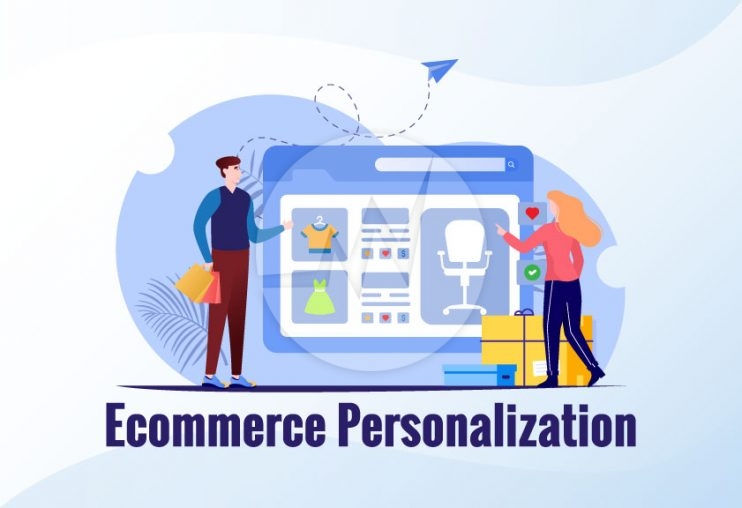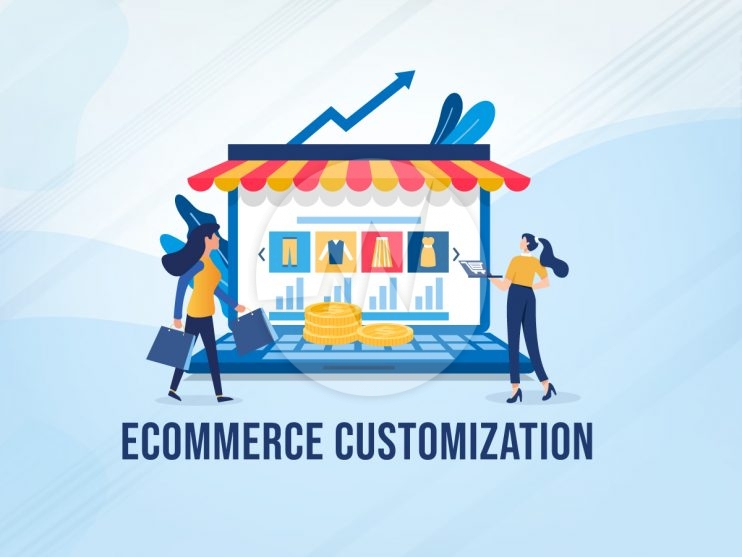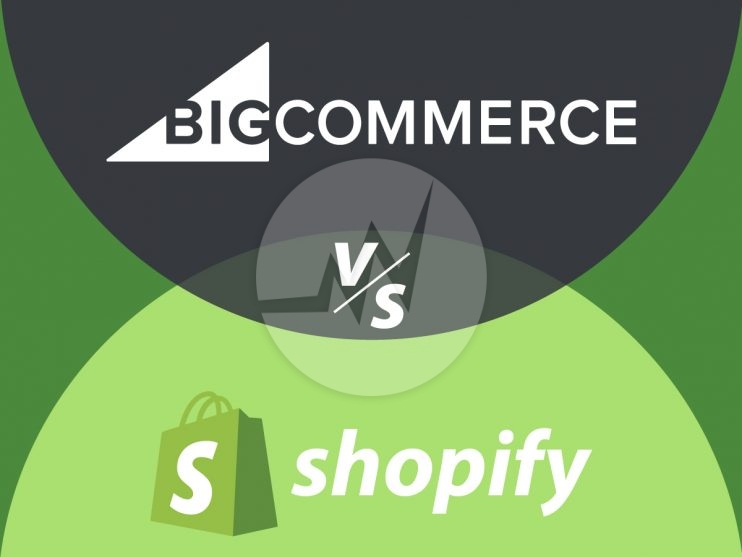How Personalized E-commerce Solution is beyond just product recommendation?

In the vast realm of ecommerce, where countless businesses are vying for attention, standing out from the crowd has become an art form.
Imagine having the ability to captivate your customers from the very first interaction, seamlessly guiding them through a shopping journey crafted exclusively for them.
Sounds intriguing, doesn’t it?
Well, get ready to explore the fascinating world of ecommerce personalization and discover how it goes far beyond the realms of mere product recommendation.
In an era where customers crave personalized experiences, businesses are adapting to meet these evolving demands. The conventional approach of a one-size-fits-all strategy is no longer sufficient. Today, it’s all about tailoring every aspect of the ecommerce customer journey to cater to individual preferences, interests, and needs. It’s about transforming transactions into memorable interactions that leave a lasting impression.
In this article, we will delve deep into the realm of personalized e-commerce solutions and uncover how they transcend the boundaries of traditional product recommendation. So, buckle up and get ready to explore the limitless potential of personalization in the world of e-commerce.
Implementing Personalized E-commerce Solutions
Implementing personalized e-commerce solutions involves a combination of data collection, analysis, and user interface design.
1. Data Collection and Analysis
Businesses need to collect and analyze customer data to foster personalized experiences. This includes information such as demographics, browsing history, purchase behavior, and feedback. Advanced analytics tools and customer relationship management (CRM) systems are essential for effectively collecting and leveraging this data.
2. Machine Learning and AI Algorithms
Machine learning algorithms play a crucial role in delivering personalized recommendations and experiences. These algorithms analyze customer data, identify patterns, and generate personalized content and product suggestions in real time.
3. User Interface and User Experience Design
The user interface (UI) and user experience (UX) design of an e-commerce platform plays a vital role in delivering personalized experiences. The UI design should be intuitive, visually appealing, and easy to navigate for the users. The UX design should focus on understanding customer needs and preferences to create a seamless and enjoyable shopping journey.
YOU MAY ALSO LIKE: Ecommerce Roadmap
Key Elements of Personalized E-commerce
To create an effective personalized e-commerce solution, several key elements need to be considered.
1. Customer Segmentation
Segmenting customers based on their demographics, preferences, and purchase history allows businesses to target specific groups with personalized offers and recommendations. By understanding customer segments, businesses can tailor their marketing efforts and product offerings to suit individual needs.
2. Behavioural Tracking and Analysis
Tracking and analyzing customer behavior provides valuable insights into their preferences, browsing patterns, and purchase history. This data helps businesses understand individual customers and deliver personalized experiences based on their past interactions.
3. Dynamic Content and Recommendations
Personalized e-commerce platforms leverage machine learning algorithms to deliver real-time, dynamic content and product recommendations to customers. By analyzing a customer’s behavior, these systems can suggest products that align with their interests, leading to increased engagement and conversion rates.
Beyond Product Recommendation
While product recommendations are an essential aspect of personalized e-commerce, there are several other dimensions to explore:
1. Customized Product Suggestions
In addition to suggesting products based on customer preferences, personalized e-commerce solutions can offer customized product suggestions based on specific occasions, trends, or events. For example, during the holiday season, customers may receive recommendations for gift ideas or festive-themed products. This level of personalization enhances the shopping experience and increases the likelihood of making a purchase.
2. Tailored Shopping Experience
Personalized e-commerce goes beyond product recommendations by customizing the entire shopping experience. This includes personalized website layouts, targeted banners or pop-ups, and personalized search results. By tailoring every touchpoint of the customer journey, businesses can create a cohesive and engaging experience that resonates with individual customers.
3. Dynamic Pricing Strategies
Personalized e-commerce solutions can incorporate dynamic pricing strategies based on individual customer behavior, demand patterns, or loyalty status. By offering personalized discounts, exclusive promotions, or loyalty rewards, businesses can incentivize customers to make purchases and increase their average order value. Dynamic pricing strategies help create a sense of exclusivity and drive customer engagement.
YOU MAY ALSO LIKE: Ecommerce Branding Strategy
4. Personalized Marketing Campaigns
Personalized e-commerce enables businesses to create highly targeted marketing campaigns. By segmenting customers based on their preferences, demographics, or purchase history, businesses can deliver personalized email campaigns, social media advertisements, or retargeting efforts. This level of personalization improves campaign effectiveness, as customers receive content that aligns with their interests, increasing the chances of conversion.
5. Customized Email Marketing
Email marketing is a highly effective channel for personalized communication. By segmenting their email lists based on customer preferences and behaviors, businesses can send targeted and relevant messages. Whether it’s personalized recommendations, abandoned cart reminders, or exclusive promotions, customized email marketing ensures that customers receive content that resonates with their interests.
6. Personalized Customer Support
Providing exceptional customer support is crucial for building long-term relationships. Personalized e-commerce extends to customer service interactions, where businesses can leverage customer data to offer tailored support. By understanding the customer’s purchase history, preferences, and past queries, support agents can provide relevant and timely assistance, resulting in increased satisfaction and loyalty.
7. Tailored Website Experience
Personalized e-commerce starts with creating a tailored website experience. By leveraging customer data, businesses can display personalized product assortments, recommend complementary items, and showcase relevant content based on the customer’s preferences. This level of personalization enhances engagement, reduces bounce rates, and increases the likelihood of conversion.
Challenges and Considerations
While personalized e-commerce offers numerous benefits, there are challenges that businesses need to address.
1. Data Privacy and Security
Collecting and storing customer data requires robust data privacy and security measures. Businesses must comply with relevant regulations and ensure that customer data is protected from unauthorized access or breaches.
2. Balancing Personalization and Intrusiveness
Personalization and intrusiveness can coexist in a delicate balance. Businesses must find a balance between giving customers individualized experiences and protecting their privacy. Overly aggressive personalization strategies may alienate customers and negatively impact their perception of the brand.
3. Scaling Personalization for Large Customer Bases
Implementing personalized e-commerce solutions for large customer bases can be challenging. Businesses must invest in scalable infrastructure and advanced analytics tools to handle the volume of data and deliver personalized experiences efficiently.
YOU MAY ALSO LIKE: Ecommerce SEO Strategies
Future Trends in Personalized E-commerce
The field of personalized e-commerce is continuously evolving, and several emerging trends are shaping its future.
1. Augmented Reality and Virtual Reality
Augmented reality (AR) and virtual reality (VR) technologies have the potential to transform the online shopping experience. By allowing customers to visualize products in real-world environments or virtually try them on, AR and VR enhance personalization and reduce the gap between online and offline shopping.
2. Voice-Activated Shopping Assistants
Voice-activated shopping assistants, powered by artificial intelligence, are gaining popularity. These assistants can understand natural language and provide personalized recommendations and assistance, making the shopping experience more interactive and convenient.
3. Hyper-Personalization through AI
Advancements in artificial intelligence (AI) enable hyper-personalization, where individual customer preferences are dynamically analyzed and acted upon. AI algorithms can predict customer needs, offer customized promotions, and even anticipate future purchases, creating highly personalized experiences.
Conclusion
In conclusion, the realm of personalized e-commerce is a vast landscape that extends far beyond simple product recommendations. It encompasses a holistic approach to tailoring the entire shopping journey to individual customers, delivering exceptional experiences that drive conversions and foster long-term loyalty.
But here’s the real question: Are you ready to take your e-commerce game to the next level? Are you ready to harness the power of personalized e-commerce and unlock its immense potential for your business? If the answer is a resounding “yes,” then it’s time to act.
Look no further! We’re here to support you. Whether you require ecommerce website development, shopping cart development, online store development, or web application development, our Ecommerce Solutions have got you covered. Additionally, we offer services for ecommerce store management, online store maintenance, shopping cart maintenance, and ecommerce website maintenance. If you have any inquiries or would like to learn more about how Skynet Technologies can help your business take a leap forward, simply reach out to us through our submission form, and we’ll respond promptly!






